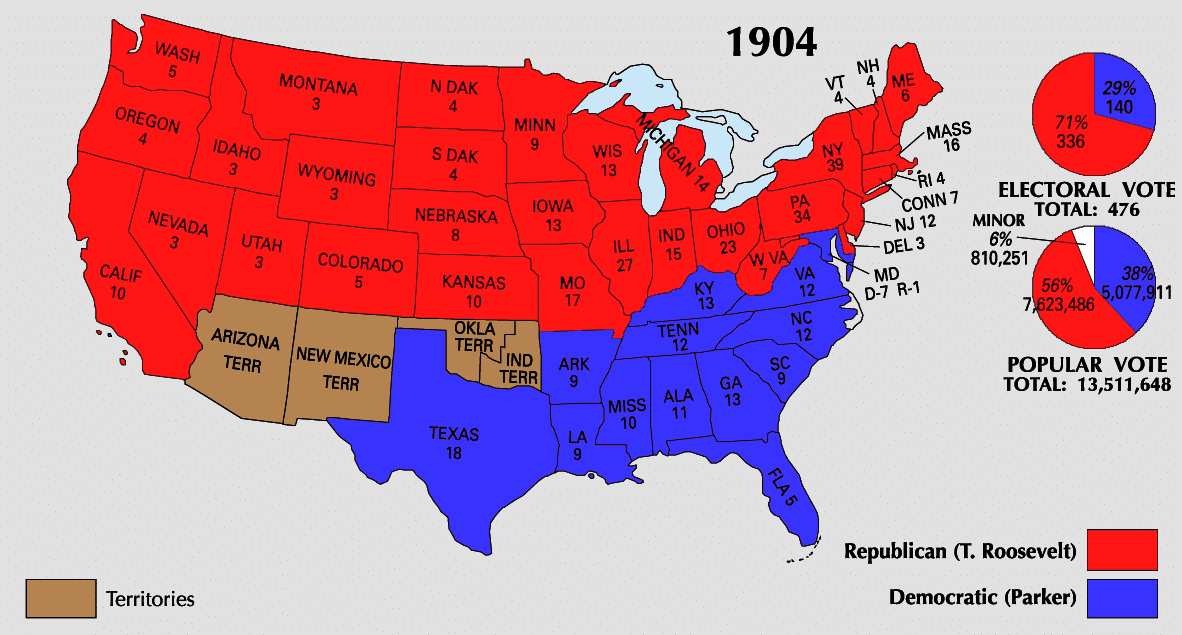The Presidential Election of 1904 would put Theodore Roosevelt against Alton Parker.

Theodore Roosevelt had taken office after the assassination of William McKinley and became one of the most popular presidents in modern times. He was a war hero and a charismatic speaker. He appealed to the common man and to those with a nationalistic spirit.
The Democratic Party was still popular in the South, but they were fading in the West. Alton Brown did not possess the charisma of William Jennings Bryan nor the experience of Grover Cleveland and was, for the most part, a weak candidate.
The Candidates were as follows:
- Republicans: Theodore Roosevelt and Vice President Charles W. Fairbanks
- Democrats: Alton Brown and Vice President and Henry Davis
Platforms
Republicans: The Republican platform insisted on the maintenance of the protective tariff, called for increased foreign trade, pledged to uphold the gold standard, favored expansion of the merchant marine, promoted a strong navy, and praised in detail Roosevelt's foreign and domestic policy. Roosevelt's popularity was also a significant portion of their platform.
Democrats: The Democratic platform called for a reduction in government expenditures and a congressional investigation of the executive departments "already known to teem with corruption"; condemned monopolies; pledged an end to government contracts with companies violating antitrust laws; opposed imperialism; insisted upon independence for the Philippines and opposed the protective tariff. It favored strict enforcement of the eight-hour workday, construction of a Panama Canal, the direct election of senators, statehood for the Western territories, the extermination of polygamy, reciprocal trade agreements, cuts in the army, and enforcement of the civil service laws.
Many of these ideals Theodore Roosevelt shared with the Democrats and would execute during his time as President.
Outcome
The campaigning was much more civil than the Elections of 1900 and 1896. this was due to Roosevelt and Parker sharing many of the same political beliefs, which meant that the election would hinge on personality.
Theodore Roosevelt was charismatic and a great orator. He was able to connect with the people and cast a magnificent vision of the future. His tenacity was hard to compete against.
Theodore Roosevelt would win the presidency in a landslide. While the South continued to be a Democrat stronghold, the West and North would all go with Roosevelt. He was the first Republican to carry the state of Missouri since Ulysses S. Grant in the election of 1868.
In voting Republican, Missouri repositioned itself from being associated with the Solid South to being seen as a bellwether swing state throughout the 20th century.
Roosevelt would become the first president to serve after the death of a President in the office to be elected to a first term.
